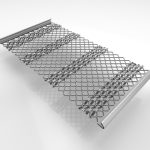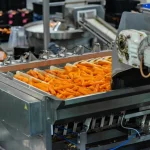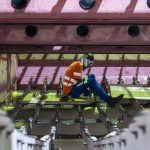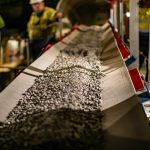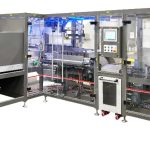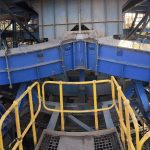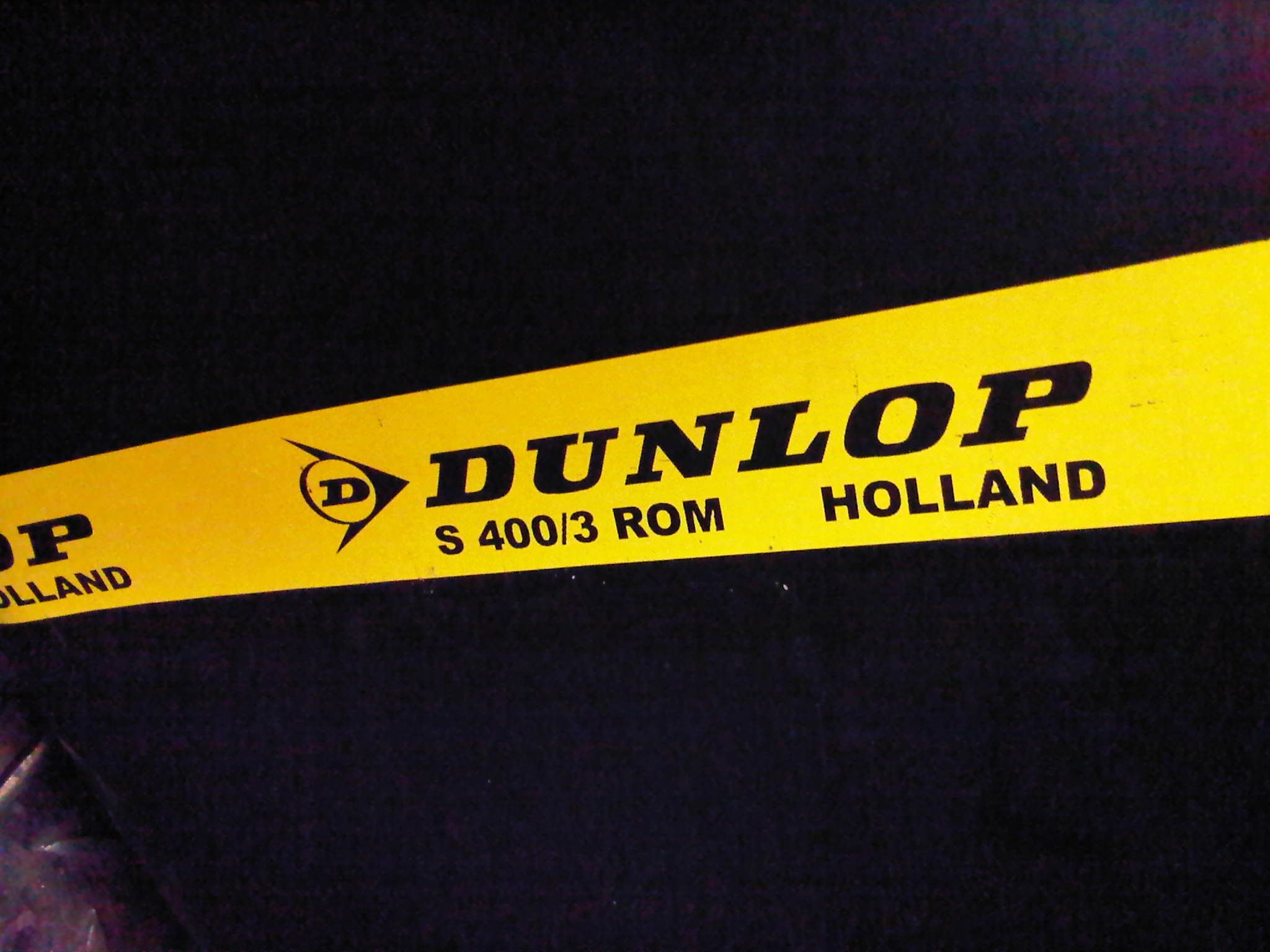The bigger the reputation for quality, the bigger the chance that competitors will want to take advantage of that reputation. While this situation is usually more associated with designer fashion brands, you may be surprised to learn that such challenges are also faced here in Africa in the world of conveyor belts. The victims in this case are Netherlands-based Fenner Dunlop Conveyor Belting. The problem is long-standing and is getting worse. So much so that conveyor belting specialist, James Okudoo, feels that it is a good time to explain what is going on and how many conveyor belt users in Africa are not buying the belts that they think they are buying.
Who are Dunlop?
Conveyor belt users in Africa can be excused for being confused over the true identity of some of the most prominent manufacturers serving the African market. Probably the longest established is Fenner Dunlop Conveyor Belting (formerly known as Dunlop Conveyor Belting). They are a global operation that is wholly owned and operated by the Fenner Group who, in turn, are a member of the Michelin Group, the world’s largest tyre manufacturer. Fenner Dunlop EMEA, based in Drachten in The Netherlands, supply conveyor belts throughout Africa. Founded in 1921 and acquired in 1965 by the British-run Dunlop Rubber Company and later becoming part of the Fenner Group, they have been manufacturing conveyor belts for more than 100 years and have a very proud pedigree and an extremely strong reputation for quality.
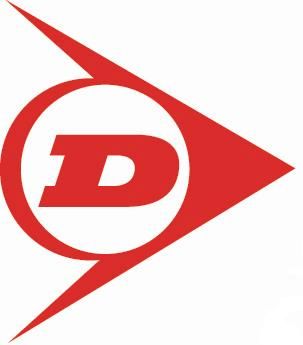
The world-famous Dunlop ‘Flying D’ logo
This is where it can be confusing because when the Dunlop Rubber Company, was broken up in the mid 1980’s, parts of the company, mainly the tyre plants but also others such as sporting goods, were sold off. A licence to use the Dunlop name and its world famous ‘Flying D’ logo, which was the big attraction to the buyers, was also made available. Johannesburg-based Dunlop Belting Products (Pty) South Africa was among those who acquired use of the name and a licence to use the ‘Flying D’ logo on a geographically restricted basis in Africa. The primary reason for this was that this plant was mainly making tyres in those days and, up to a lesser extent, conveyor belts.
In 2009 they were acquired by the German company, Rema Tip Top, who provide conveying services and products as well as tyre repair. Especially over recent years, there have been a growing number of misconceptions including the belief that Dunlop Belting Products in South Africa are part of Fenner Dunlop. Another misconception is that Rema Tip Top own Fenner Dunlop when in fact nothing could be further from the truth.
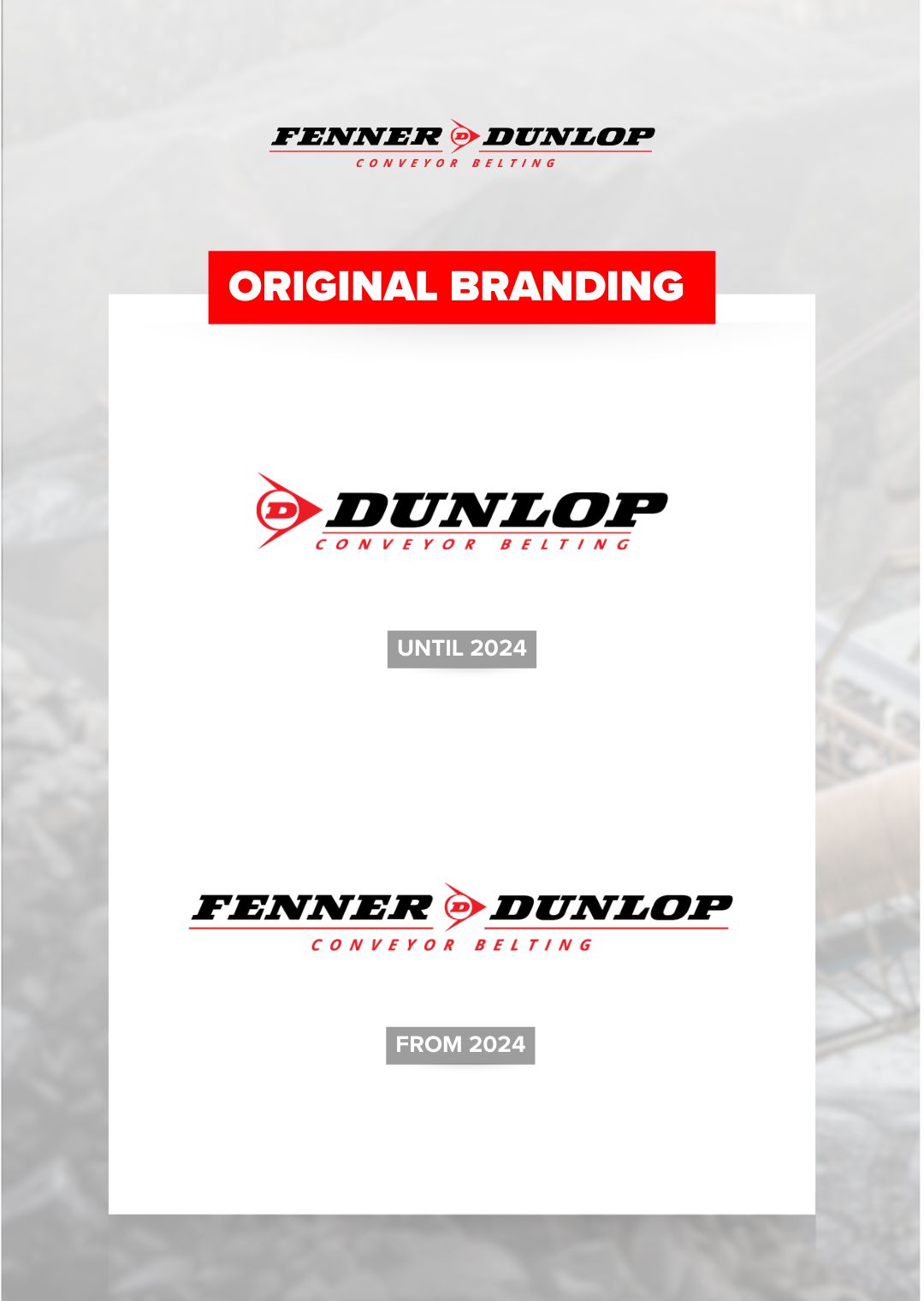
Dunlop Conveyor Belting changed their name to Fenner Dunlop Conveyor Belting to beat the imitators.
In an effort to distance themselves from such perceived connections, Dunlop Conveyor Belting changed their name to Fenner Dunlop Conveyor Belting last year. So, to set the record straight once and for all, neither Dunlop Belting Products (Pty) in South Africa nor Rema Tip Top have any connection whatsoever with Fenner Dunlop Conveyor Belting; in fact they are competitors.
Underhand tactics
Despite operating in an exceptionally price-competitive market largely dominated by Southeast Asian manufacturers, Fenner Dunlop have continued to prosper. This is entirely due to an unwavering market strategy of selling premier quality belts that are exclusively manufactured in their own facilities and a ‘unique selling proposition’ based on ‘lowest lifetime cost’.
In recent years there have been strong indications that the market is beginning to turn away from low grade ‘throwaway’ belts for both economic and environmental reasons. As if in answer to this trend, some of Fenner Dunlop’s competitors are now increasingly using underhand tactics to falsely associate themselves with them. For example, one Chinese manufacturer audaciously claimed to be a manufacturer of Fenner Dunlop conveyor belts. To support this deception, they adapted a Fenner Dunlop quality guarantee certificate by adding their name and logo, ‘signature’ and company details.
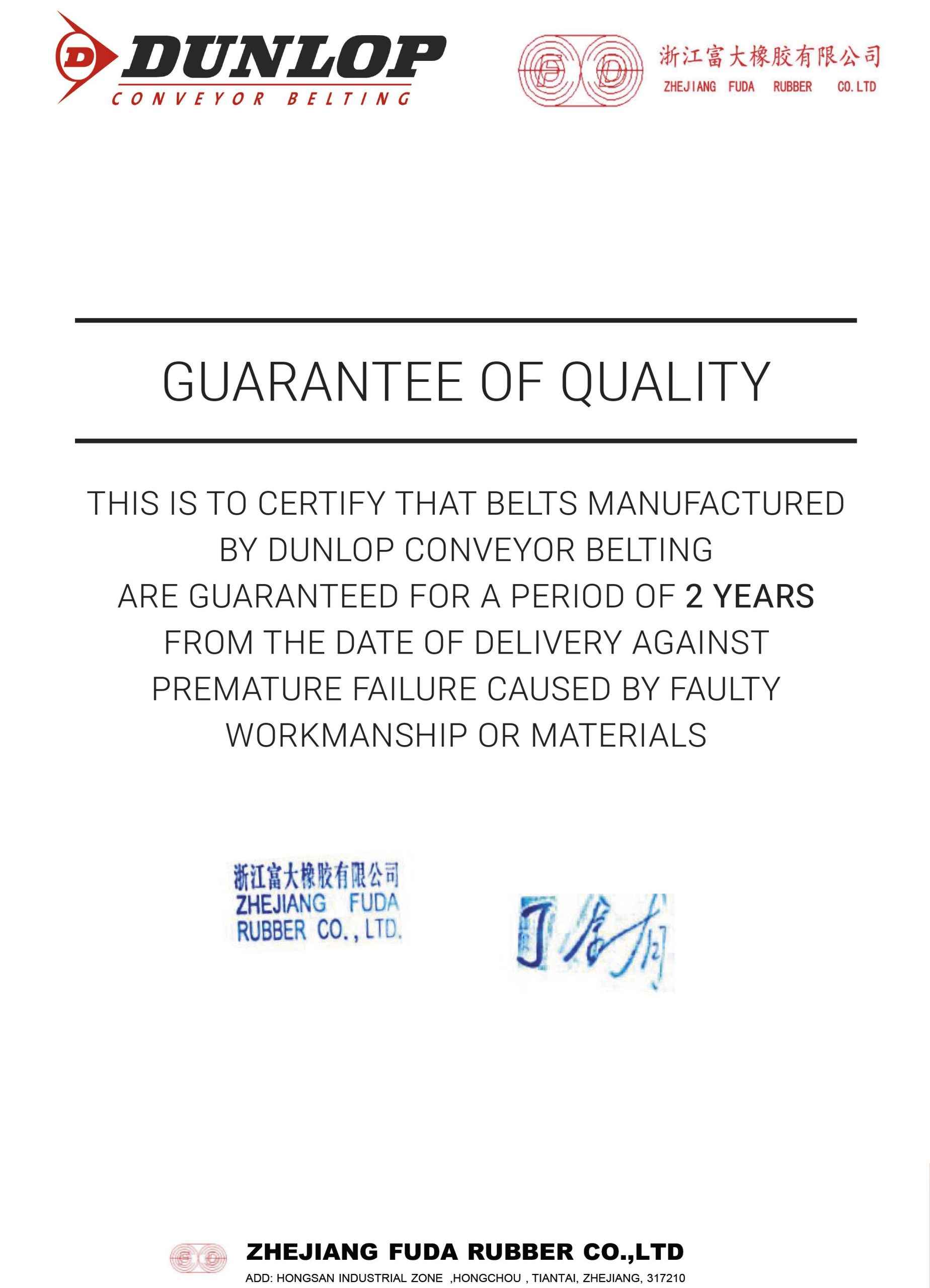
Forged quality guarantee certificate
Other blatant acts of dishonesty include a sales office operated in Africa by a competitor that sent a forged Fenner Dunlop Conveyor Belting letter to prospective customers claiming to be an authorized ‘re-seller’ (in other words an approved distributor) of Fenner Dunlop Conveyor Belting products. Similar claims are being made throughout Africa. Some even claim that their company owns Fenner Dunlop and that all future orders for Dunlop conveyor belts should be sent to them directly.
Andries Smilda, Fenner Dunlop’s sales & marketing director, is very aware of the lengths that some competitors will go to in order to deceive the market. “Although dishonest claims such as these reinforce the fact that our competitors in Africa want people to believe that they are part of our company and can supply the very best quality belts, it also does a lot of harm, both to ourselves and end-users. Unsuspecting customers are being fooled into buying what they believe to be genuine ‘Made in The Netherlands’ Fenner Dunlop belts, without realising that the quality of the belts is extremely poor. When they begin to experience performance problems, the belts start needing frequent repairs and wear out much too quickly then that damages our reputation. We know this to be true because we often receive complaints about belts we have not actually manufactured from customers who have been tricked in this way”.
The Real Thing
Andries Smilda went on to explain that, for a great many reasons, especially quality, performance, safety and environmental impact, genuine Fenner Dunlop conveyor belts are NEVER manufactured in China or South Africa. “All our belts are produced using our own production facilities in The Netherlands. Unlike the majority of our competitors, we never import and re-sell belts using outside sources”.
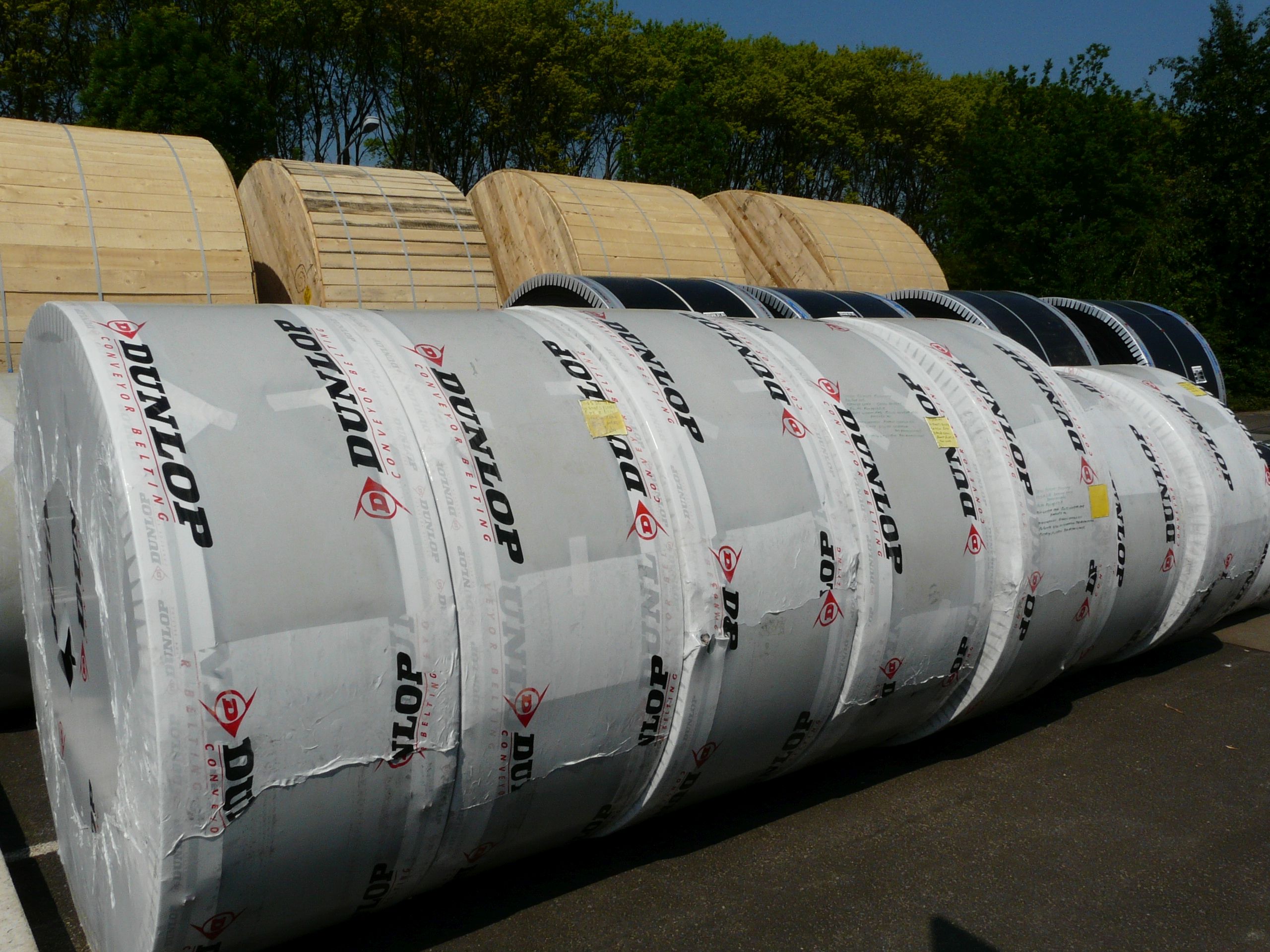
All Fenner Dunlop belts sold in Africa are produced in The Netherlands
In addition,Andries Smilda says that any claim of ownership, trading connection, similarity of product quality or claims to manufacture products on behalf of Fenner Dunlop should be regarded as entirely false. “To help avoid imitation, all our products are branded and packaged very clearly so that they cannot be confused with those supplied by other organizations”. Another step that the company have taken to protect themselves and their customers is to introduce a simple verification facility (Dunlop.validity.check@dunlopcb.com) to help customers confirm that they are dealing with an authorized representative.
The Quality Benchmark
Fenner Dunlop certainly have a long and proud history of product excellence, technical knowledge and innovation. As a result, their conveyor belts are rightly acknowledged as being the ultimate quality benchmark.
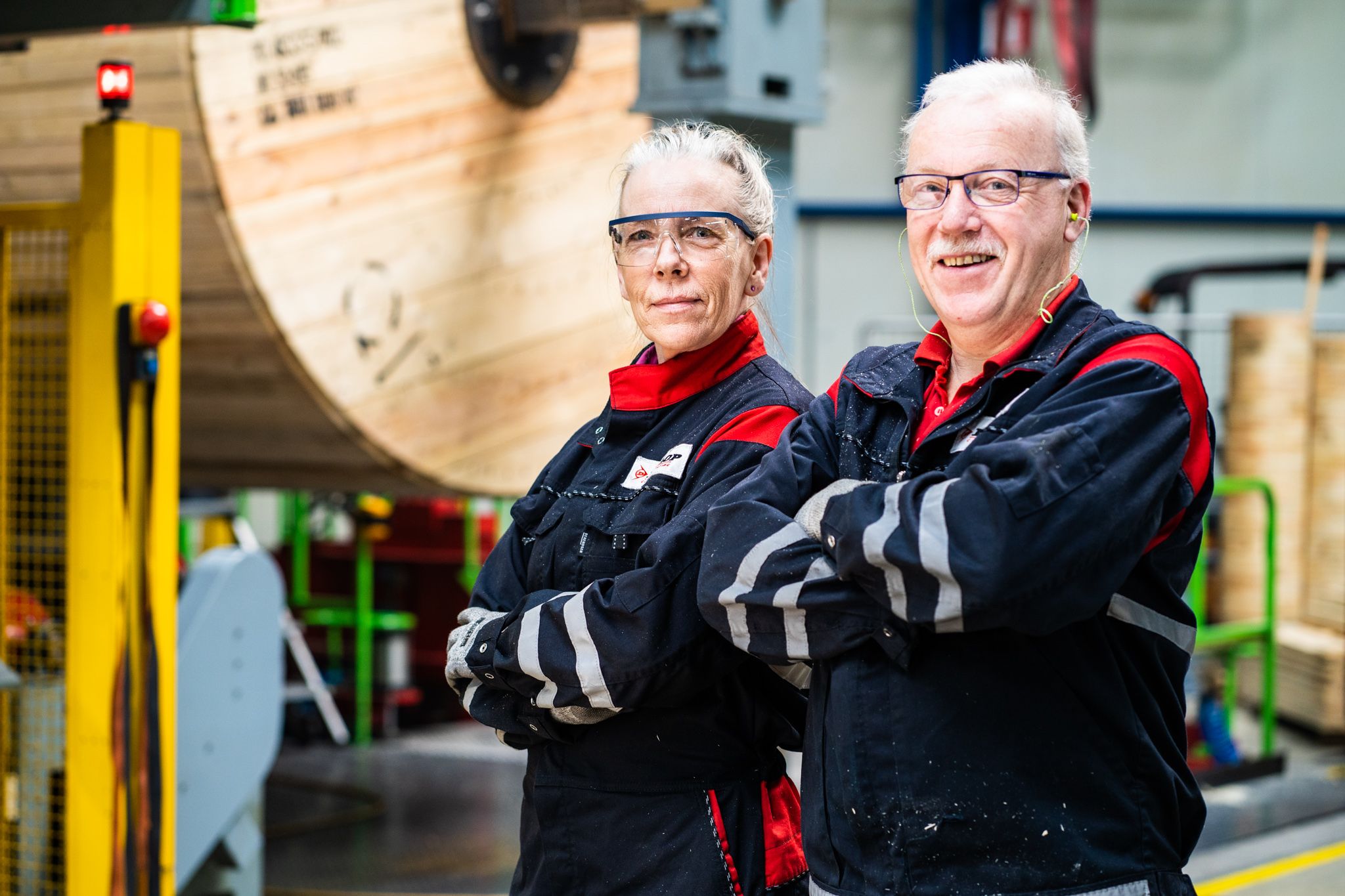
A long and proud history
However, this hard-won reputation is precisely why others wish to be associated with it. Ironically, such impersonation and imitation expose a lack of belief in their own products. They say that imitation is the sincerest form of flattery. However, in this case, I would suggest that it is backfiring on the imitators in an enormous way.
James Okudoo

